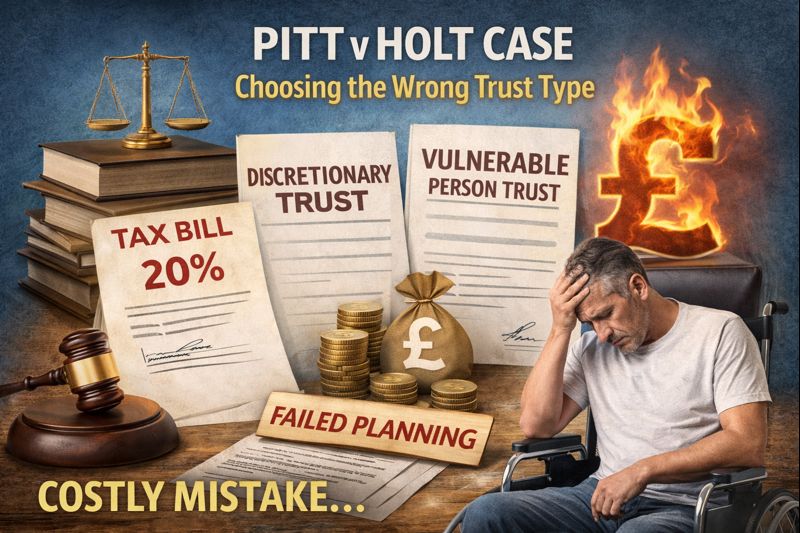What is Donatio Mortis Causa? Understanding ‘Death Bed Gifts’
Introduction: In the complex world of inheritance law, “Donatio Mortis Causa” (DMC) stands out as a hybrid concept, bridging the gap between lifetime gifts and testamentary dispositions. Rooted in Roman law and carried into modern legal systems, it offers an alternative mechanism to ensure property transfers upon death without the formalities of a will.
What is Donatio Mortis Causa? A “Donatio Mortis Causa” translates to a “gift made in contemplation of death.” Unlike typical gifts (inter vivos), which are transferred immediately and irrevocably during the donor’s lifetime, a DMC only takes full effect upon the donor’s death. This peculiar mix of lifetime gift and testamentary transfer makes it unique, as it requires the donor to be contemplating imminent death as the driving reason for the gift.
Key Legal Requirements for a Valid Donatio Mortis Causa: To ensure the enforceability of a DMC, English law sets out specific conditions:
- Contemplation of Death: The donor must make the gift while facing an impending death, typically from a specific illness or impending peril. The donor does not need to be on their deathbed, but there must be a real expectation of imminent demise.
- Conditional Nature: The gift is conditional upon the donor’s death. Should the donor survive, the gift can be revoked. The revocability highlights that the gift is not absolute until death occurs.
- Transfer of Possession or Control: The donor must deliver the subject matter of the gift to the donee. This does not require formal legal transfer but must show the donor’s intention to pass ownership. For instance, handing over keys to a vehicle, the title deeds to property, or account books for financial assets would typically suffice. The gift is completed only upon the donor’s death, at which point the donee takes full ownership.
- Donor’s Ownership at Death: The property must belong to the donor at the time of death. If the donor no longer owns the property at the time of death, the DMC fails.
Types of Property Covered: Traditionally, DMCs have applied to both tangible and intangible property, including personal possessions, money, and even real property in some cases. However, there are practical limitations to what can be transferred through DMCs, and certain types of assets may still require formal mechanisms such as a will or trust.
Legal Precedents: The concept of DMC has been shaped and refined by case law over the years. For example, in Sen v Headley (1991), the court ruled that the transfer of house keys and title deeds satisfied the requirement for a valid DMC in real property. In contrast, other cases have clarified what might or might not constitute sufficient delivery of the gift during the donor’s lifetime.
Advantages of Donatio Mortis Causa:
- Flexibility in Deathbed Decisions: DMC allows individuals who may not have formalised their wills to make last-minute gifts without the formalities required for testamentary disposition.
- Avoidance of Probate: Since the gift is effective immediately upon death without the need for probate, DMCs can provide an efficient transfer mechanism for smaller estates or specific items.
- Revocability: The donor retains control over the gift during their lifetime, offering peace of mind that the transfer will only take effect upon death.
Disadvantages and Legal Risks:
- Vagueness and Ambiguity: Since DMCs are often made in urgent, informal settings, they can be susceptible to legal challenges, especially concerning the donor’s intention and whether the correct formalities were observed.
- Potential for Fraud or Disputes: The informal nature of DMCs means there is potential for disputes among beneficiaries, particularly if the gift contradicts the provisions of the donor’s will or other testamentary documents.
- Limited Scope: While DMCs offer flexibility, they are not a substitute for proper estate planning, especially for individuals with complex estates or multiple heirs.
Conclusion: Donatio Mortis Causa offers an interesting blend of lifetime gift and testamentary disposition, allowing individuals to make last-minute gifts in contemplation of death. While it has its advantages, particularly in urgent situations, it comes with certain risks and potential for disputes. Individuals should ensure they meet the strict legal requirements for DMC, and whenever possible, it’s wise to integrate such gifts into a broader estate plan, using formal instruments like wills or trusts to ensure clarity and avoid disputes. As always, legal advice from a professional is recommended when dealing with DMC to navigate its complexities effectively.




